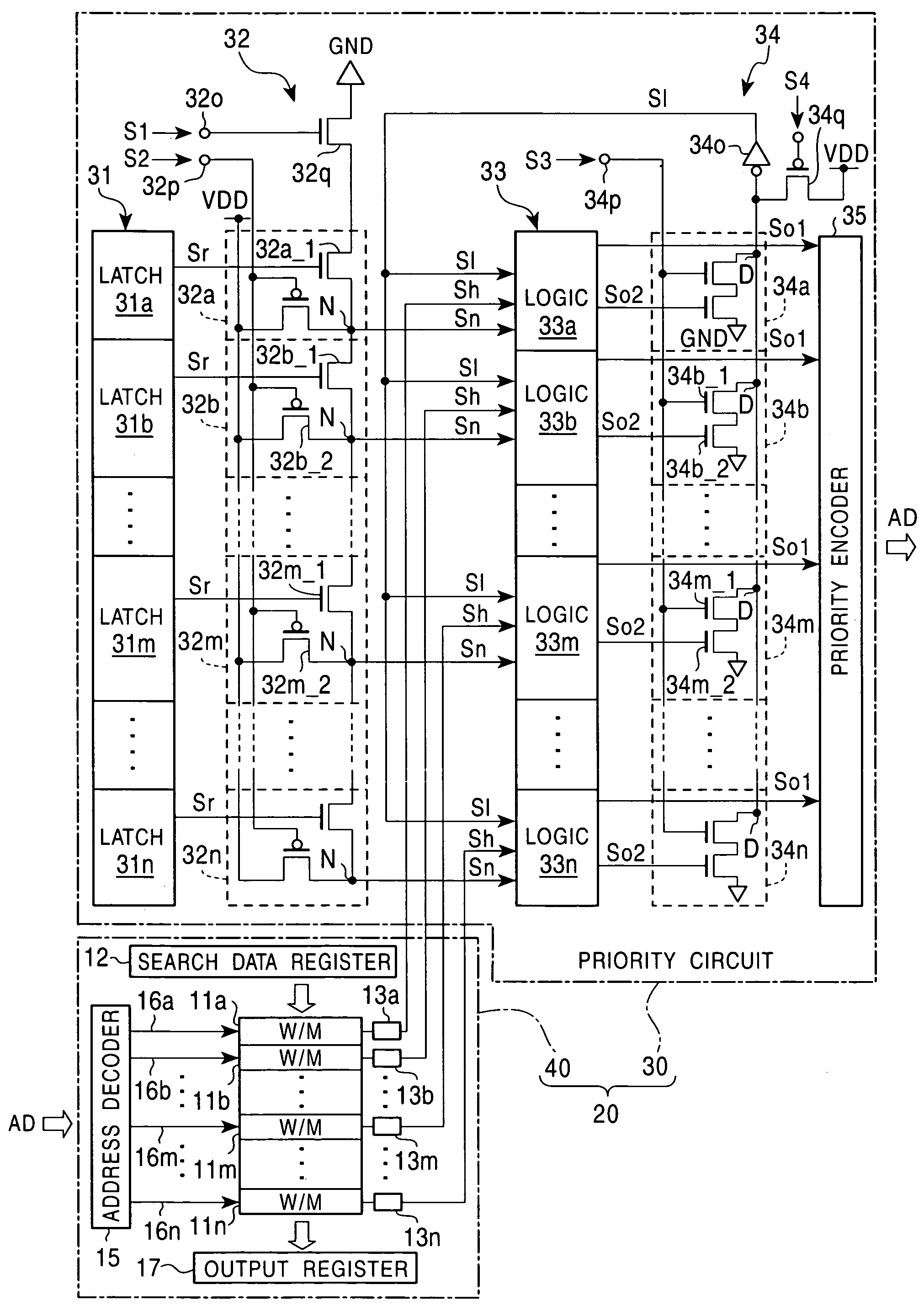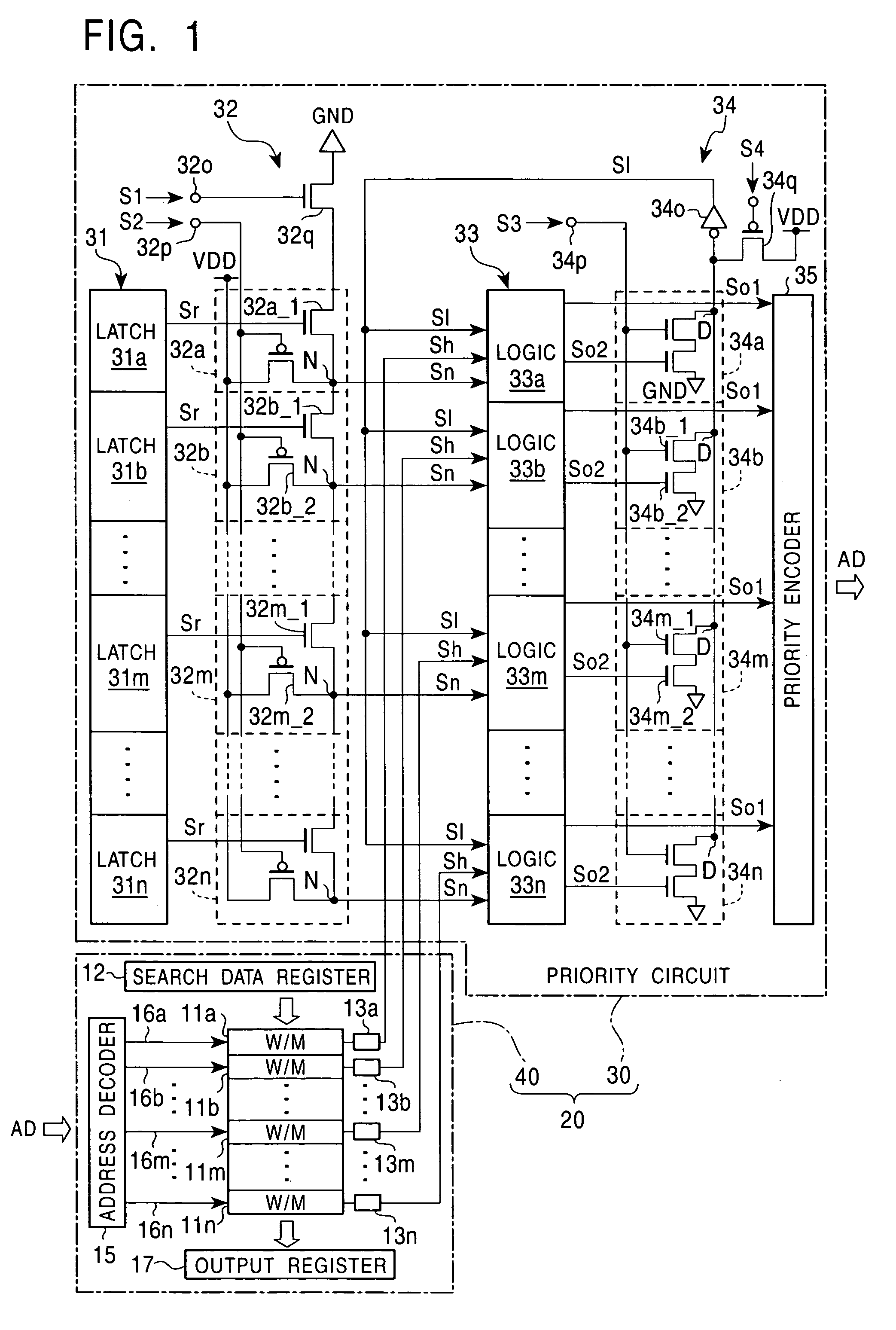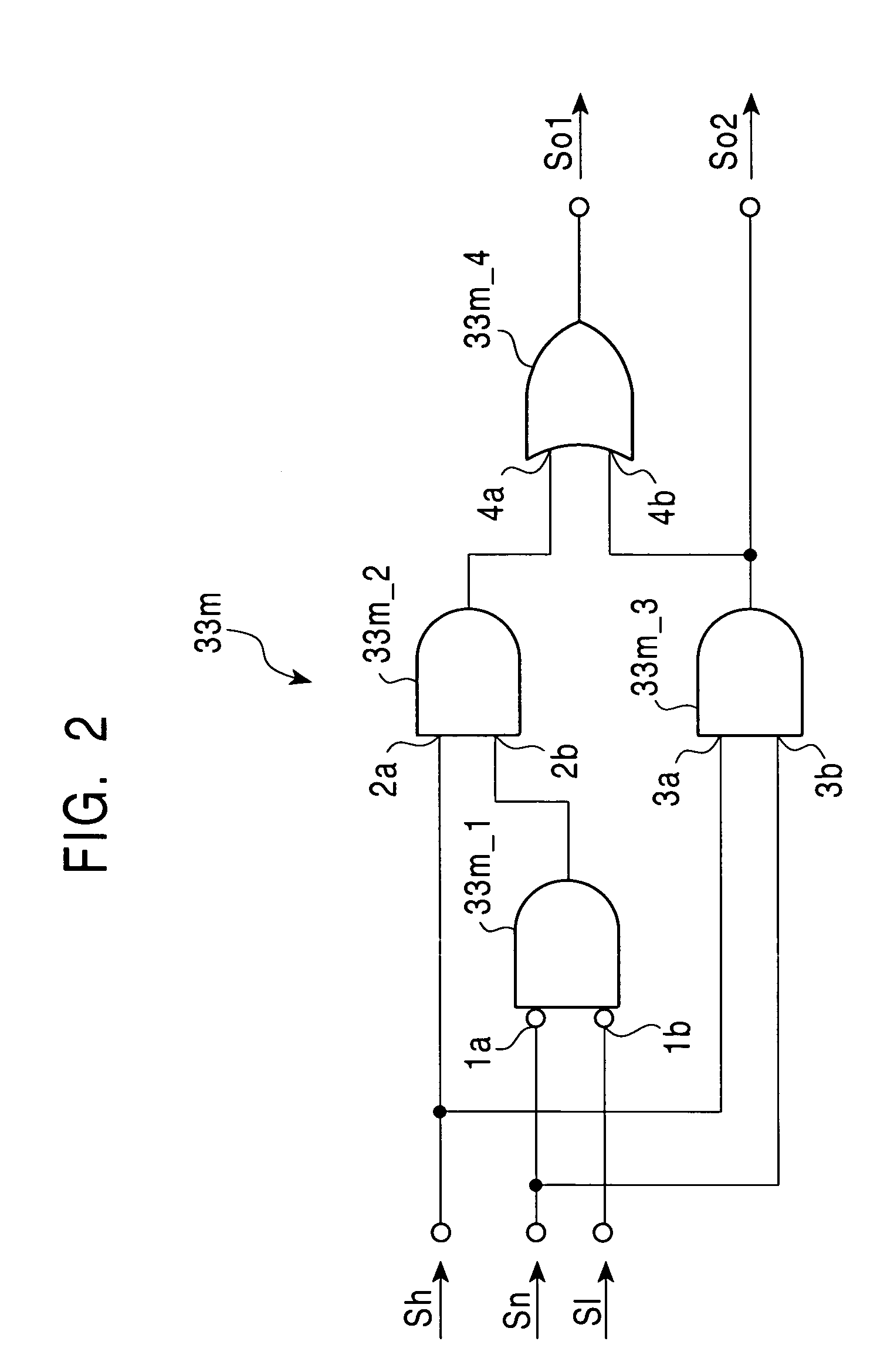Content addressable memory capable of changing priority in priority encoder
a technology of priority encoder and content addressable memory, which is applied in the field of priority encoder, can solve problems such as the complication of managing the data stored in the cam, and achieve the effect of facilitating the management of stored data items and search results
- Summary
- Abstract
- Description
- Claims
- Application Information
AI Technical Summary
Benefits of technology
Problems solved by technology
Method used
Image
Examples
first embodiment
[0034]FIG. 1 is a block diagram showing a CAM 20 according to the present invention.
[0035]A portion of the CAM 20 which includes word memories 11a, 11b, . . . , 11n, a search data register 12, flag registers 13a, 13b, . . . , 13n, an address decoder 15, word memory lines 16a, 16b, . . . , 16n, and an output register 17 is identical in configuration and operation to the above portion of the conventional CAM 10 shown in FIG. 13. Accordingly, the components in the portion of the CAM 20 are denoted by identical reference numerals, and a detailed description of each component is omitted. The present invention is characterized by a priority circuit 30.
[0036]The priority circuit 30 includes a first prior word-memory setting unit (hereinafter referred to as “the first prior W / M setting section”) 31, a division circuit 32, an upper-side mask circuit 33, a detection circuit 34, and a priority encoder 35. In the first embodiment, for a plurality of word memories, fixed priority levels in the p...
second embodiment
[0077]Next, the present invention is described below.
[0078]FIG. 4 is a block diagram showing a CAM 60 according to a second embodiment of the present invention.
[0079]In FIG. 4, components identical to those described with reference to FIG. 1 are denoted by identical reference numerals. Accordingly, a detailed description thereof is omitted.
[0080]The CAM 60 consists of a priority circuit 50 and a memory portion 40. The priority circuit 50 includes a first prior word-memory setting section 51, a first division circuit 52, a last prior word-memory setting section 53, a last division circuit 54, a mode signal generating circuit 55, a mask circuit 56, a detection circuit 34, and a priority encoder 35.
[0081]The first prior word-memory setting section 51 sets, from among a plurality of word memories in the memory portion 40, a word memory whose address is to be output prior to the addresses of the other word memories. The designated word memory is hereinafter referred to as the first prior...
PUM
 Login to View More
Login to View More Abstract
Description
Claims
Application Information
 Login to View More
Login to View More - R&D
- Intellectual Property
- Life Sciences
- Materials
- Tech Scout
- Unparalleled Data Quality
- Higher Quality Content
- 60% Fewer Hallucinations
Browse by: Latest US Patents, China's latest patents, Technical Efficacy Thesaurus, Application Domain, Technology Topic, Popular Technical Reports.
© 2025 PatSnap. All rights reserved.Legal|Privacy policy|Modern Slavery Act Transparency Statement|Sitemap|About US| Contact US: help@patsnap.com



